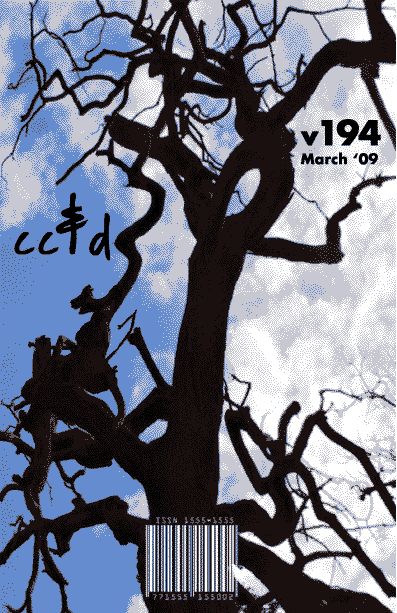



This appears in a pre-2010 issue
|

|
|
|
| ||
|
Order this writing in the book Survival of the Fittest Get this book in different forms: |
 |
|
| |
|
Ink in my Blood (prose edition) (PDF file) download: only $4.95 (b&w pgs): paperback book $16.95 (b&w pgs):hardcover book $32.95 (color pgs): paperback book $64.95 (color pgs): hardcover book $74.95 |
 |
|
| |
![]()




